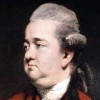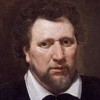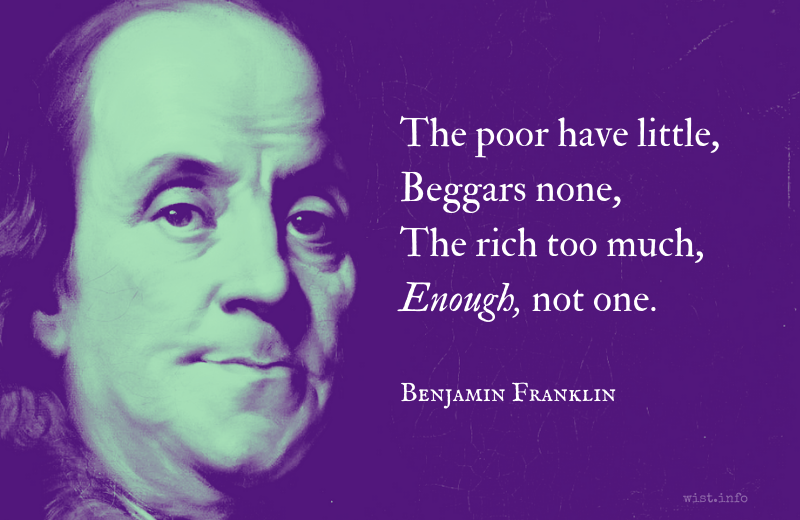The poor have the same basic pleasures of the rich, and the rich will always resent it.
Mignon McLaughlin (1913-1983) American journalist and author
The Neurotic’s Notebook, ch. 1 (1963)
(Source)
Quotations about:
wealth
Note not all quotations have been tagged, so Search may find additional quotes on this topic.
Poverty wants some things, Luxury many things, Avarice all things.
Benjamin Franklin (1706-1790) American statesman, scientist, philosopher, aphorist
Poor Richard (1735 ed.)
(Source)
Thirst, hunger, and nakedness, are positive evils: but wealth is relative; and a prince who would be rich in a private station, may be exposed by the increase of his wants to all the anxiety and bitterness of poverty.
Edward Gibbon (1737-1794) English historian
The History of the Decline and Fall of the Roman Empire, ch. 61 (1776-88)
(Source)
You seem to have great possessions! How else can this be, but that you have preferred your own enjoyment to the consolation of the many? For the more you abound in wealth, the more you lack in love.
[ἀλλὰ μὴν φαίνῃ ἔχων κτήματα πολλά. Πόθεν ταῦτα; ἢ δῆλον ὅτι τὴν οἰκείαν ἀπόλαυσιν προτι μοτέραν τῆς τῶν πολλῶν παραμυθίας ποιούμενος. Ὅσον οὖν πλεονάζεις τῷ πλούτῳ, τοσοῦτον ἐλλείπεις τῇ ἀγάπῃ.]
Basil of Caesarea (AD 330-378) Christian bishop, theologian, monasticist, Doctor of the Church [Saint Basil the Great, Ἅγιος Βασίλειος ὁ Μέγας]
“To the Rich [Ὁμιλία πρὸς τοὺς πλουτούντας],” sermon (c. 368) [tr. Schroeder (2009)]
(Source)
In C. Paul Schroeder, ed., Saint Basil on Social Justice (2009).
The King’s cheese is half wasted in parings: But no matter, ’tis made of the peoples milk.
Benjamin Franklin (1706-1790) American statesman, scientist, philosopher, aphorist
Poor Richard (1735 ed.)
(Source)
When will the Miser’s Chest be full enough?
When will he cease his Bags to cram and stuff?
All Day he labours and all Night contrives,
Providing as if he’d an hundred Lives.
While endless Care cuts short the common Span:
So have I seen with Dropsy swoln, a Man,
Drink and drink more, and still unsatisfi’d,
Drink till Drink drown’d him, yet he thirsty dy’d.Benjamin Franklin (1706-1790) American statesman, scientist, philosopher, aphorist
Poor Richard (1735 ed.)
(Source)
How rich a man is all desire to know;
But none inquires if good he be or no.
It takes a grate deal of money tew make a man ritch, but it don’t take but little virtew.
[It takes a great deal of money to make a man rich, but it doesn’t take but little virtue.]
Josh Billings (1818-1885) American humorist, aphorist [pseud. of Henry Wheeler Shaw]
Everybody’s Friend, Or; Josh Billing’s Encyclopedia and Proverbial Philosophy of Wit and Humor, ch. 144 “Affurisms: Gnats” (1874)
(Source)
You cannot be a slave of two masters; you will hate one and love the other; you will be loyal to one and despise the other. You cannot serve both God and money.
The Bible (The New Testament) (AD 1st - 2nd C) Christian sacred scripture
Luke 16:13 [GNT (1976)]
(Source)
Alternate translations:
No man can serve two masters: for either he will hate the one, and love the other; or else he will hold to the one, and despise the other. Ye cannot serve God and mammon.
[KJV (1611)]
No one can be the slave of two masters: he will either hate the first and love the second, or treat the first with respect and the second with scorn. You cannot be the slave both of God and of money.
[JB (1966)]
No one can be the slave of two masters: he will either hate the first and love the second, or be attached to the first and despise the second. You cannot be the slave both of God and of money.
[NJB (1985)]
No one can serve two masters. Either you will hate the one and love the other, or you will be loyal to the one and have contempt for the other. You cannot serve God and wealth.
[CEB (2011)]
No one can serve two masters, for a slave will either hate the one and love the other or be devoted to the one and despise the other. You cannot serve God and wealth.
[NRSV (2021 ed.)]
If it be true that a man is rich who wants nothing, a wise man is a very rich man.
[S’il est vrai que l’on soit riche de tout ce dont on n’a pas besoin, un homme fort riche, c’est un homme qui est sage.]Jean de La Bruyère (1645-1696) French essayist, moralist
The Characters [Les Caractères], ch. 6 “Of Gifts of Fortune [Des Biens de Fortune],” § 49 (6.49) (1688) [tr. Van Laun (1885)]
(Source)
(Source (French)). Alternate translations:
If he is only rich who wants nothing, a very wise Man is a very rich Man.
[Bullord ed. (1696)]
If a Man is rich, by all which he does not want, a wise Man is a very rich Man.
[Curll ed. (1713)]
If he is rich who wants nothing, a very wise Man is a very rich Man.
[Browne ed. (1752)]
If it is true that wealth consists in having few wants, the wise man is a very wealthy man.
[tr. Stewart (1970)]
Focusing your life solely on making a buck shows a certain poverty of ambition. It asks too little of yourself. You need to take up the challenges that we face as a nation and make them your own. Not because you have a debt to those who helped you get here, although you do have that debt. Not because you have an obligation to those who are less fortunate than you, although I do think you do have that obligation. It’s primarily because you have an obligation to yourself. Because individual salvation has always depended on collective salvation. Because it’s only when you hitch your wagon to something larger than yourself that you realize your true potential.
Barack Obama (b. 1961) American politician, US President (2009-2017)
Speech (2005-06-04), Commencement, Knox College, Galesburg, Illinois
(Source)
A little House well fill’d, a little Field well till’d, and a little Wife well will’d, are great Riches.
Benjamin Franklin (1706-1790) American statesman, scientist, philosopher, aphorist
Poor Richard (1735 ed.)
(Source)
There nothing so sacred that money cannot corrupt it, and nothing so well defended that money cannot over throw it.
[Nihil esse tam sanctum quod non violari, nihil tam munitum quod non expugnari pecunia possit.]
Marcus Tullius Cicero (106-43 BC) Roman orator, statesman, philosopher
In Verrem [Against Verres; Verrine Orations], Action 1, ch. 2 / sec. 4 (1.2.4) (70 BC) [tr. Berry (2006)]
(Source)
Boast by Caius Verres (or so Cicero alleges).
Various translations vary as to whether this is 1.2.4 (which I have chosen) or 1.1.4 (as noted).
(Source (Latin)). Alternate translations:
Nothing is so holy that it cannot be corrupted, or so strongly fortified that it cannot be stormed by money.
[tr. Yonge (1903), 1.1.4]
No sanctuary is too holy for money to defile it, no fortress too strong for money to capture it.
[tr. Greenwood (1928)]
Nothing, he declares, is too sacred to be corrupted by money; nothing too strong to resist its attack.
[tr. Grant (1960)]
There is nothing so sacred that it cannot be sullied, nor anything so protected that it cannot be overcome by money.
[tr. @sententiq (2017), 1.1.4]
There is no sanctuary so holy that money cannot profane it, no fortress so strong that money cannot take it by storm.
[Source]
My days of love are over; me no more
The charms of maid, wife, and still less of widow,
Can make the fool of which they made before, —
In short, I must not lead the life I did do;
The credulous hope of mutual minds is o’er,
The copious use of claret is forbid too,
So for a good old-gentlemanly vice,
I think I must take up with avarice.
Nothing more clearly shows how little God esteems his gift to men of wealth, money, position and other worldly goods, than the way he distributes these, and the sort of men who are most amply provided with them.
[Rien ne fait mieux comprendre le peu de chose que Dieu croit donner aux hommes, en leur abandonnant les richesses, l’argent, les grands établissements et les autres biens, que la dispensation qu’il en fait, et le genre d’hommes qui en sont le mieux pourvus.]
Jean de La Bruyère (1645-1696) French essayist, moralist
The Characters [Les Caractères], ch. 6 “Of Gifts of Fortune [Des Biens de Fortune],” § 24 (6.24) (1688) [tr. Stewart (1970)]
(Source)
See Alexander Pope.
(Source (French)). Alternate translations:
Nothing makes us better comprehend what little things God thinks he bestows on Mankind, when he suffers 'em to abound in Riches, Gold, Settlements, Stations, and other advantages, than the dispensations he makes of them, and the sort of men who are best provided.
[Bullord ed. (1696)]
Nothing makes us better comprehend what little things God thinks he bestows on Mankind, in suffering 'em to abound in Riches, Mony, great Preferments, and other Advantages, than the Distribution he makes of 'em, and the sort of Men who are best provided.
[Curll ed. (1713)]
Nothing makes us better understand what trifling things Providence thinks He bestows on men in granting them wealth, money, dignities, and other advantages, than the manner in which they are distributed and the kind of men who have the largest share.
[tr. Van Laun (1885)]
A man is rich whose income is larger than his expenses, and he is poor if his expenses are greater than his income.
[Celui-là est riche, qui reçoit plus qu’il ne consume; celui-là est pauvre, dont la dépense excède la recette.]Nicolas Chamfort (1741-1794) French writer, epigrammist (b. Nicolas-Sébastien Roch)
The Characters [Les Caractères], ch. 6 “Of Gifts of Fortune [Des Biens de Fortune],” § 49 (6.49) (1688) [tr. Van Laun (1885)]
(Source)
(Source (French)). Alternate translations:
He is rich whose Receipt is more than his Expences, and he is poor whose Expences are more than his Receipt.
[Bullord ed. (1696)]
He is rich, whose Income is more than his Expences; and he is poor whose Expences are more than his Income.
[Curll ed. (1713)]
He is rich, whose Income is more than his Expences; and he is poor whose Expences exceed his Income.
[Browne ed. (1752)]
That man is rich, who gets more than he spends; that man is poor, whose expenses exceed his receipts.
[tr. Stewart (1970)]
Scorn for wealth among philosophers was at bottom a desire to avenge themselves against fate, by despising the very things of which she deprived them. It was a strategic way of avoiding the humiliations of poverty, a roundabout way of gaining an esteem they could not gain through wealth.
[Le mépris des richesses était dans les philosophes un désir cache de venger leur mérite de l’injustice de la fortune par le mépris des mêmes biens dont elle les privait; c’était un secret pour se garantir de l’avilissement de la pauvreté; c’était un chemin détourné pour aller à la considération qu’ils ne pouvaient avoir par les richesses.]
François VI, duc de La Rochefoucauld (1613-1680) French epigrammatist, memoirist, noble
Réflexions ou sentences et maximes morales [Reflections; or Sentences and Moral Maxims], ¶54 (1665-1678) [tr. Kronenberger (1959)]
(Source)
This maxim appeared in the first edition, with various small modifications across subsequent editions.
(Source (French)). Alternate translations:
The contempt of wealth, in the Philosophers, was a secret desire of vindicating their merit, against the injustice of Fortune, by an affected slighting of those goods, whereof she depriv'd them. It was an humorous secret, which they had found out, to indemnifie themselves from the disparagement accessory to Poverty. In fine, it was a winding path, or by-way to get into that esteem, which they could not obtain by Riches.
[tr. Davies (1669), ¶170]
When the Philosophers despised Riches, it was because they had a mind to vindicate their own Merit, and take a Revenge upon the injustice of Fortune, by vilifying those Enjoyments which She had not given them: This was a secret to ward off the Contempt that Poverty brings, a kind of winding By-path to get into the Esteem of the World, and when Riches had not made them considerable, to make themselves so some other way.
[tr. Stanhope (1694), ¶55]
The contempt of riches in the philosophers was a concealed desire of revenging on Fortune the injustice done to their merit, by despising the good she denied them. It was a secret to shelter them from the ignominy of poverty ; a bye-way to arrive at the esteem they could not procure by wealth.
[pub. Donaldson (1783), ¶341; ed. Lepoittevin-Lacroix (1797), ¶54]
Contempt of riches in the old philosophers was a concealed desire of revenge, by despising the good which Fortune had denied them. It was an artful shelter from the disgrace of poverty: a by-way to arrive at that esteem which they could not procure by wealth.
[ed. Carville (1835), ¶301]
The contempt of riches among the philosophers was a hidden desire to revenge their merit for the injustice of Fortune, by contempt of the very advantages of which she deprived them. It was a secret to secure themselves from the degradation of poverty: it was a by road to arrive at that consideration which they could not obtain by riches.
[ed. Gowens (1851), ¶55]
The contempt of riches in philosophers was only a hidden desire to avenge their merit upon the injustice of fortune, by despising the very goods of which fortune had deprived them; it was a secret to guard themselves against the degradation of poverty, it was a back way by which to arrive at that distinction which they could not gain by riches.
[tr. Bund/Friswell (1871)]
The Philosophers' scorn of wealth was but their secret ambition to exalt their merit above fortune by deriding those blessings which Fate denied them. It was a ruse to shield them from the sordidness of poverty, and a subterfuge to attain that distinction which they could not achieve by wealth.
[tr. Heard (1917)]
Contempt of wealth was, among the early philosophers, due to a secret desire to vindicate their worth agaiunst the malignity of fate, by affecting to despise those very gifts of which it deprived them. It was a means of insurance against the ignominy of poverty, a round-about way of acquiring the esteem they were unable to command by the possession of wealth.
[tr. Stevens (1939)]
Philosophers have expressed their contempt for material riches; they thus reveal their wish to vindicate their merit on their fate by displaying their contempt for those gifts which fate has withheld from them; it is a secret remedy to save them from those degradations which poverty entails; it is also an indirect method for obtaining that respect which they cannot gain through wealth.
[tr. FitzGibbon (1957)]
The scorn for riches displayed by the philosophers was a secrete desire to recompense their own merit for the injustice of Fortune by scorning those very benefits she had denied them; it it was a private way of remaining unsullied by poverty, a devious path towards the high respect they could not command by wealth.
[tr. Tancock (1959)]
The contempt which philosophers professed for wealth, was but a hidden desire of getting revenge for their merit upon the injustice of Fortune, by despising those goods of which she had deprived them: it was a secret by which to protect themselves against the degradation of poverty; it was an alternate path by which to gain that consideration which they had not been able to attain through riches.
[tr. Whichello (2016)]
In truth, poverty is an anomaly to rich people. It is very difficult to make out why people who want dinner do not ring the bell.
Walter Bagehot (1826-1877) British businessman, essayist, journalist
“The Waverley Novels,” National Review (1858-04)
(Source)
A review of Sir Walter Scott's very popular and lengthy book series of that name, which includes his (today) most famous, Ivanhoe.
He does not possess Wealth, it possesses him.
Benjamin Franklin (1706-1790) American statesman, scientist, philosopher, aphorist
Poor Richard (1734 ed.)
(Source)
In truth, it is not want, but rather abundance, that breeds avarice.
[De vray, ce n’est pas la disette, c’est plustost l’abondance qui produict l’avarice.]
Michel de Montaigne (1533-1592) French essayist
Essays, Book 1, ch. 14 “The Taste of Good and Bad Things Depends Mostly on the Opinion We Have of Them [Que le goust des biens et des maux despend en bonne partie de l’opinion que nous en avons]” (1572) (1.14) (1595) [tr. Frame (1943)]
(Source)
Though this chapter was written around 1572 for the 1580 edition, this text was added for the 1588 edition. The chapter as a whole was numbered ch. 14 in the 1580 and 1588 editions, moved to ch. 40 for the 1595 ed. Most modern translations use the original numbering.
(Source (French)). Alternate translations:
Verily, it is not want, but rather plenty that causeth avarice.
[tr. Florio (1603), ch. 40]
In plain truth, it is not Want, but rather Abundance, that Creates Avarice.
[tr. Cotton (1686), ch. 40]
In truth, it is not want, but rather abundance, that creates avarice.
[tr. Cotton/Hazlitt (1877), ch. 40]
In truth, it is not want, but rather abundance, which gives birth to avarice.
[tr. Ives (1925)]
And truly it is not want that produces avarice but plenty.
[tr. Screech (1987)]
Truly, abundance rather than want causes stinginess.
[tr. HyperEssays (2023)]
He called to mind all the millionaires he had ever read or heard of; they didn’t seem to get much fun out of their riches. The majority of them were martyrs to dyspepsia. They were often weighed down by the cares and responsibilities of their position; the only people who were unable to obtain an audience of them at any time were their friends; they lived in a glare of publicity, and every post brought them hundreds of begging letters, and a few threats; their children were in constant danger from kidnappers, and they themselves, after knowing no rest in life, could not be certain that even their tombs would be undisturbed. Whether they were extravagant or thrifty, they were equally maligned, and, whatever the fortune they left behind them, they could be absolutely certain that, in a couple of generations, it would be entirely dissipated.
F. Anstey (1856-1934) English novelist and journalist (pseud. of Thomas Anstey Guthrie)
The Brass Bottle, ch. 7 (1900)
(Source)
Let us not envy a certain class of men for their enormous riches; they have paid such an equivalent for them that it would not suit us; they have given for them their peace of mind, their health, their honour, and their conscience; this is rather too dear, and there is nothing to be made out of such a bargain.
[N’envions point à une sorte de gens leurs grandes richesses; ils les ont à titre onéreux, et qui ne nous accommoderait point: ils ont mis leur repos, leur santé, leur honneur et leur conscience pour les avoir; cela est trop cher, et il n’y a rien à gagner à un tel marché.]Jean de La Bruyère (1645-1696) French essayist, moralist
The Characters [Les Caractères], ch. 6 “Of Gifts of Fortune [Des Biens de Fortune],” § 13 (6.13) (1688) [tr. Van Laun (1885)]
(Source)
One translator suggestions the "certain class of men" refers to the partisans, or tax-farmers: private tax collectors, often of humble origin, who purchased the right to their job, and were notorious for turning tax collection into a profitable profession.
(Source (French)). Alternate translations:
Let us not envy some Men their great Riches; their Burthens would be too heavy for us; we cou'd not Sacrifice, as they do, Health, Quiet, Honour and Conscience, to obtain 'em: 'Tis to pay so dear for them that there is nothing to be got by the Bargain.
[Bullord ed. (1696)]
Let us not envy some Men their great Riches, their burden would be too heavy for us; we cou'd not sacrifice, as they do, Health, Quiet, Honour and Conscience, to obtain 'em: 'Tis to pay so dear for 'em, that there is nothing to be got by the Bargain.
[Curll ed. (1713)]
Let us not envy some Men their accountable Riches; their Burthen would be too heavy for us; we could not sacrifice, as they do, Health, Quiet, Honour and Conscience, to obtain them. It is to pay so dear for them, that the Bargain is a Loss.
[Browne ed. (1752)]
We need not envy certain people their great wealth; they acquired it at a heavy cost, which would not suit us; they staked their rest, their health, their honour and their conscience to acquire it; the price is too high, and there is nothing to be gained by such a bargain.
[tr. Stewart (1970)]
To what extremes, O cursèd lust for gold
will you not drive man’s appetite?
[Per che non reggi tu, o sacra fame
de l’oro, l’appetito de’ mortali?]Dante Alighieri (1265-1321) Italian poet
The Divine Comedy [Divina Commedia], Book 2 “Purgatorio,” Canto 22, l. 40ff (22.40-41) [Statius] (1314) [tr. Musa (1981)]
(Source)
Statius is quoting Virgil (whose shade stands in front of him) from The Aeneid, Book 3, ll. 56-57:
Quid non mortalia pectora cogis,
Auri sacra fames?
Unlike the phrase in that pagan book, which is purely about the corrupting power of greed and gold-lust, Dante's Italian and some translators make reference to a "holy hunger," a virtue/rule of proper attitude toward money and spending, criticized here for it not restraining humans from the sins of being either spendthrifts or misers -- a nod to Aristotle making sin about extremes and virtue about moderation. See Ciardi, Durling, Kirkpatrick, Princeton, and Sayers for more discussion.
(Source (Italian)). Alternate translations:
Why, thou cursed thirst
Of gold! dost not with juster measure guide
The appetite of mortals?
[tr. Cary (1814)]
Why should'st thou not restrain accursèd thirst
Of gold, the appetite of mortals lost?
[tr. Bannerman (1850)]
To what impellest thou not, O cursed hunger
Of gold, the appetite of mortal men?
[tr. Longfellow (1867)]
Why restrainest thou not, O holy hunger of gold, the desire of mortals?
[tr. Butler (1885)]
To what lengths, O thou cursed thirst of gold,
Dost thou not rule the mortal appetite?
[tr. Minchin (1885)]
O cursed hunger of gold, to what dost thou not impel the appetite of mortals?
[tr. Norton (1892)]
Wherefore dost thou not regulate the lust of mortals, O hallowed hunger of gold?
[tr. Okey (1901)]
To what, O cursed hunger for gold, dost thou not drive the appetite of mortals?
[tr. Sinclair (1939)]
O hallowed hunger of gold, why dost thou not
The appetite of mortal men control?
[tr. Binyon (1943)]
With what constraint constran'st thou not the lust
Of mortals, thou devoted greed of gold!
[tr. Sayers (1955)]
To what do you not drive man's appetite,
O cursèd gold-lust!
[tr. Ciardi (1961)]
Why do you not control the appetite
Of mortals, O you accurst hunger for gold?
[tr. Sisson (1981)]
Why cannot you, o holy hunger
for gold, restrain the appetite of mortals?
[tr. Mandelbaum (1982)]
O sacred hunger for gold, why do you not rule human appetite?
[tr. Kline (2002)]
Why do you, O holy hunger for gold, not
govern the appetite of mortals?
[tr. Durling (2003)]
You, awestruck hungering for gold! Why not
impose a rule on mortal appetite?
[tr. Kirkpatrick (2007)]
To what end, O cursèd hunger for gold,
do you not govern the appetite of mortals?
[tr. Hollander/Hollander (2007)]
Accursed craving for money, what is there, in
This world, you don't lead human beings to?
[tr. Raffel (2010)]
How far, O rich, do you extend your senseless avarice? Do you intend to be the sole inhabitants of the earth? Why do you drive out the fellow sharers of nature, and claim it all for yourselves? The earth was made for all, rich and poor, in common. Why do you rich claim it as your exclusive right? The soil was given to the rich and poor in common — wherefore, oh, ye rich, do you unjustly claim it for yourselves alone? Nature gave all things in common for the use of all; usurpation created private rights. Property hath no rights. The earth is the Lord’s, and we are his offspring. The pagans hold earth as property. They do blaspheme God.
Ambrose of Milan (339-397) Roman theologian, statesman, Christian prelate, saint, Doctor of the Church [Aurelius Ambrosius]
(Attributed)
Frequently quoted in the early 20th Century in various social justice writings, and in the years since then, but all citations I can find fall back to its inclusion in Upton Sinclair, The Cry for Justice, Book 8 "The Church" (1915) (though it can be found somewhat earlier than that).
There are such things as to speak well, to speak easily, to speak correctly, and to speak seasonably. We offend against the last way of speaking if we mention a sumptuous entertainment we have just been present at before people who have not had enough to eat; if we boast of our good health before invalids; if we talk of our riches, our income, and our fine furniture to a man who has not so much as an income or a dwelling; in a word, if we speak of our prosperity before people who are wretched; such a conversation is too much for them, and the comparison which they then make between their condition and ours is very painful.
[Il y a parler bien, parler aisément, parler juste, parler à propos. C’est pécher contre ce dernier genre que de s’étendre sur un repas magnifique que l’on vient de faire, devant des gens qui sont réduits à épargner leur pain; de dire merveilles de sa santé devant des infirmes; d’entretenir de ses richesses, de ses revenus et de ses ameublements un homme qui n’a ni rentes ni domicile; en un mot, de parler de son bonheur devant des misérables: cette conversation est trop forte pour eux, et la comparaison qu’ils font alors de leur état au vôtre est odieuse.]
Jean de La Bruyère (1645-1696) French essayist, moralist
The Characters [Les Caractères], ch. 5 “Of Society and Conversation [De la Société et de la Conversation],” § 23 (5.23) (1688) [tr. Van Laun (1885)]
(Source)
(Source (French)). Alternate translations:
Some men talk well, easily, justly, and to the purpose: those offend in the last kind, who speak of the Banquets they are to be at, before such as are reduc'd to spare their Bread; of sound Limbs, before the Infirm; of Demesnes and Revenues, before the Poor and Needy; of fine Houses and Furniture, before such as have neither Dwelling or Moveables: in a word, who speak of Prosperity, before the Miserable. This conversation is too strong for 'em, and the comparison you make between their condition and yours is odious.
[Bullord ed. (1696)]
There is speaking well, speaking easily, speaking justly, and speaking seasonably: 'Tis transgressing the last rule, to speak ofthe sumptuous Entertainments you have made, before such as are reduc'd to want of Bread; of a healthy Constitution of Body, before the Infirm; of Demesnes, Revenues and Furniture, before a Man who has neither Dwelling, Rents, nor Movables; in a word, to speak of your Prosperity before the Miserable: this Conversation is too strong from them, and the Comparison they make between their Condition and yours is odious.
[Curll ed. (1713)]
There is speaking well, speaking easily, speaking justly, and speaking seasonably: It is offending against the last, to speak of Entertainments before the Indigent; of sound Limbs and Health before the Infirm; of Houses and Lands before one who has not so much as a Dwelling; in a Word, to speak of your Prosperity before the Miserable; this Conversation is cruel, and the Comparison which naturally rises in them betwixt their Condition and yours is excruciating.
[Browne ed. (1752)]
There is a difference between speaking well, speaking easily, speaking with judgement and speaking opportunely. We fail in this last respect when we enlarge upon the splendid meal we have just enjoyed in front of people who have to be thrifty of their bread; or boast of our health in the presence of invalids; or talk about our wealth, our fortune and property to a man who has neither home nor income; in a word, when we speak of our happiness in front of those who are wretched; such conversation is too painful for them, and the comparison they are bound to make between your state and their own is intolerable.
[tr. Stewart (1970)]
Speak not of wealth; I can’t admire a god
whom even the basest man can get into his hold.Euripides (485?-406? BC) Greek tragic dramatist
Æolus [Αἴολος], frag. 20 (TGF)
(Source)
Nauck frag. 20, Barnes frag. 15, Musgrave frag. 14. (Source (Greek)). Alternate translations:
Talk not of Plutus; I despise the God
Whom every villain may with ease possess.
[tr. Wodhull (1809)]
Why, if all the rich men in the world divided up their money amongst themselves, there wouldn’t be enough to go round!
Christina Stead (1902-1983) Australian writer
House of All Nations, sc. 12 “The Revolution” [Jules] (1938)
(Source)
Pooh-poohing the idea that confiscating wealth from the rich would provide enough money to the poor. The line is also included in the "Credo" at the beginning of the novel, attributed to the character, Jules Bertillon.
As favour and riches forsake a man, we discover in him the foolishness they concealed, and which no one perceived before.
[À mesure que la faveur et les grands biens se retirent d’un homme, ils laissent voir en lui le ridicule qu’ils couvraient, et qui y était sans que personne s’en aperçût.]Jean de La Bruyère (1645-1696) French essayist, moralist
The Characters [Les Caractères], ch. 6 “Of Gifts of Fortune [Des Biens de Fortune],” § 4 (6.4) (1688) [tr. Van Laun (1885)]
(Source)
(Source (French)). Alternate translations:
When Riches and Favour forsake a Man, we see presently he was a Fool, but no body could find it out in his Prosperity.
[Bullord ed. (1696)]
In proportion as Riches and Favour forsake a Man, we discover he was a Fool, which no body cou'd find out in his Prosperity.
[Curll ed. (1713)]
As Riches and Favour forsake a Man, we discover him to be a Fool, but no body could find it out in his Prosperity.
[Browne ed. (1752)]
As a man falls out of favour and his wealth declines, we discover for the first time the ridiculous aspects of his character, which were always there but which wealth and favour had concealed.
[tr. Stewart (1970)]
What Nature wants, commodious Gold bestows,
‘Tis thus we eat the bread another sows:
But how unequal it bestows, observe,
‘Tis thus we riot, while who sow it, starve.
What Nature wants (a phrase I much distrust)
Extends to Luxury, extends to Lust;
And if we count among the Needs of life
Another’s Toil, why not another’s Wife?
Useful, we grant, it serves what life requires,
But dreadful too, the dark Assassin hires:
Trade it may help, Society extend;
But lures the Pyrate, and corrupts the Friend:
It raises Armies in a nation’s aid,
But bribes a Senate, and the Land’s betray’d.Alexander Pope (1688-1744) English poet
“An Epistle to Allen, Lord Bathurst: Of the Use of Riches” (1733), Moral Essays, Epistle 3 (1735)
(Source)
Earthly riches can neither bless us nor our children with happiness; we must either lose them in this life or leave them to be enjoyed after our death by one, we cannot tell whom, perhaps by those we would not should have them.
[Felices enim uel nos uel filios nostros non diuitiae terrenae faciunt aut nobis uiuentibus amittendae aut nobis mortuis a quibus nescimus uel forte a quibus nolumus possidendae.]Augustine of Hippo (354-430) Christian church father, philosopher, saint [b. Aurelius Augustinus]
City of God [De Civitate Dei], Book 5, ch. 18 (5.18) (AD 412-416) [tr. Healey (1610)]
(Source)
(Source (Latin)). Alternate translations:
For it is not earthly riches which make us or our sons happy; for they must either be lost by us in our lifetime, or be possessed when we are dead, by whom we know not, or perhaps by whom we would not.
[tr. Dods (1871)]
The riches of this earth can make neither us nor our children happy, if they are to be lost while we are alive or, after we are dead, are to pass to people we do not know or, perhaps, dislike.
[tr. Zema/Walsh (1950)]
For neither we nor our children are made happy by earthly riches, since they are bound either to be lost while we are living or to be acquired after our death by persons unknown and perhaps unwelcome.
[tr. Green (Loeb) (1963)]
Happiness, whether for us or for our children, is not the result of earthly riches, which must either be lost by us in our lifetime or else must pass after our death into the possession of those we do not know or, it may be, of those whom we do not wish to have them.
[tr. Bettenson (1972)]
For neither we nor our sons are made happy by earthly riches. These things must either be lost while we are still alive or, after we are dead, acquired by someone whom we do not know, or perhaps by someone whom we would not wish to have them.
[tr. Dyson (1998)]
For earthly riches do not make either us or our children happy; they will either be lost while we are still alive or will pass, after our death, to someone we do not know or even to someone we do not want.
[tr. Babcock (2012)]
If you desire power, desire nothing
but contentment, which is its own kingdom.Sa'adi (1184-1283/1291?) Persian poet [a.k.a. Sa'di, Moslih Eddin Sa'adi, Mushrif-ud-Din Abdullah, Muslih-ud-Din Mushrif ibn Abdullah, Mosleh al-Din Saadi Shirazi, Shaikh Mosslehedin Saadi Shirazi]
Gulistān [Rose Garden, گُلِستان], ch. 2 “On the Morals of Dervishes,” Story 28 (1258) [tr. Rehatsek/Newman (2004)]
(Source)
Alternate translations:
If you want riches, seek only for contentment which is inestimable wealth.
[tr. Gladwin (1806)]
Wouldest thou be rich, seek, but content to gain;
For this a treasure is that ne'er will harm.
[tr. Eastwick (1852)]
If thou wishest for power, covet nothing
Except contentment which is sufficient happiness.
[tr. Burton (1888)]
If thou covetest riches, ask not but for contentment, which is an immense treasure.
[tr. Ross (1900)]
Seek not, if thou desire riches,
Aught but contentment, for it is an agreeable treasure.
[tr. Platts (1904)]
Well, it’s no trick to make a lot of money — if all you want to do is make a lot of money.
Joseph Mankiewicz (1909-1993) American screenwriter, director, producer
Citizen Kane [Mr. Bernstein] (1941) [with Orson Welles]
(Source)
That man is the richest whose pleasures are cheapest.
I have never been in any rich man’s house which would not have looked the better for having a bonfire made outside of it of nine-tenths of all that it held.
William Morris (1834-1896) British textile designer, writer, socialist activist
“The Art of the People,” speech, Birmingham Society of Arts (1879-02-19)
(Source)
Whilst that for which all virtue now is sold,
And almost every vice, almighty gold ….Ben Jonson (1572-1637) English playwright and poet
“Epistle to Elizabeth, Countess of Rutland” (1599)
(Source)
Reprinted in The Forest, Poem 12.
Any man with few needs appears a menace to the rich for he is always in a position to escape from them, and the tyrants see that thus they lose a slave.
[Tout homme qui a peu de besoins semble menacer les riches d’être toujours prêt à leur échapper. Les tyrans voient par là qu’ils perdent un esclave.]
Nicolas Chamfort (1741-1794) French writer, epigrammist (b. Nicolas-Sébastien Roch)
Products of Perfected Civilization [Produits de la Civilisation Perfectionée], Part 1 “Maxims and Thoughts [Maximes et Pensées],” ch. 3, ¶ 266 (1795) [tr. Mathers (1926)]
(Source)
(Source (French)). Alternate translations:
Any man whose needs are few seems to threaten the rich with the possibility of his escaping them. Tyrants are thereby faced with the prospect of losing a slave.
[tr. Merwin (1969)]
Any man who has few needs seems to threaten the rich with his readiness to escape from them. Thereby tyrants realize that they are losing a slave.
[tr. Pearson (1973)]
Every man who has few needs seems to menace the wealthy with the constant threat of escaping from them. Tyrants see in such a proposition the loss of a slave.
[tr. Siniscalchi (1994)]
Anyone whose needs are small seems threatening to the rich, because he's always ready to escape their control. This is how tyrants recognize that they're losing a slave.
[tr. Parmée (2003)]
Thou art an heyre to fayre lyving, that is nothing, if thou be disherited of learning, for better were it to thee to inherite righteousnesse then riches, and far more seemely were it for thee to have thy Studie full of bookes, then thy pursse full of mony: to get goods is the benefit of Fortune, to keepe them the gift of Wisedome.
[Thou art an heir to fair living; that is nothing if thou be disinherited of learning, for better were it to thee to inherit righteousness than riches and far more seemly were it for thee to have thy study full of books than thy purse full of money. To get goods is the benefit of fortune, to keep them the gift of wisdom. (1916 ed.)]John Lyly (c. 1553-1606) was an English writer [also Lilly or Lylie]
Euphues: The Anatomy of Wit, “Letter to Alcius” (1579)
(Source)
Better is a little with contentment than great Treasure; and trouble therewith.
Abigail Adams (1744-1818) American correspondent, First Lady (1797-1801)
Letter to Mary Smith Cranch (1790-02-20)
(Source)
Whoever said money can’t solve your problems must not have had enough money to solve them.
Ariana Grande (b. 1993) American singer, songwriter, actress
“7 Rings”, Thank U, Next (2018)
(Source)
Call me a scoundrel, only call me rich!
All ask how great my riches are, but none
Whether my soul is good.[ἔα με κερδαίνοντα κεκλῆσθαι κακόν]
Euripides (485?-406? BC) Greek tragic dramatist
Bellerophon [Βελλεροφῶν], frag. 181 (Nauck, TGF) (c. 430 BC) [tr. Gummere (1925)]
(Source)
Barnes frag. 65. Found (in Latin) in Seneca, Epistulae morales ad Lucilium, 115.14:
Sine me vocari pessimum, ut dives vocer.
An dives, omnes quaerimus, nemo, an bonus.
(Source (Greek)). Alternate translations:
If any gain ensue, I am content.
To be term'd wicked. We all ask this question,
Whether a man be rich, not whether virtuous.
[tr. Wodhull (1809)]
Let me be called a scoundrel, but a rich one.
We all ask if he’s rich, not if he’s good.
[Source]
He that is rich need not live sparingly, and he that can live sparingly need not be rich.
Benjamin Franklin (1706-1790) American statesman, scientist, philosopher, aphorist
Poor Richard (1734 ed.)
(Source)
But the rich man is tortured by fears, wasted with griefs, aflame with greed, never free from care, always restless and uneasy, out of breath from unending struggles with his enemies. It is true enough that he increases his holdings beyond measure by going through these miseries; but at the same time, thanks to that very increase, he also multiples his bitter cares. In contrast, the individual of moderate means is satisfied with his small and limited property; he is loved by family and friends; he enjoys sweet peace with his relations, neighbors, and friends; he is devout in his piety, benevolent of mind, sound of body, moderate in his style of life, unblemished in character, and untroubled in conscience. I do not know whether anyone would be so foolish as to have any doubt about which of the two to prefer.
[Alium praediuitem cogitemus; sed diuitem timoribus anxium, maeroribus tabescentem, cupiditate flagrantem, numquam securum, semper inquietum, perpetuis inimicitiarum contentionibus anhelantem, augentem sane his miseriis patrimonium suum in inmensum modum atque illis augmentis curas quoque amarissimas aggerantem; mediocrem uero illum re familiari parua atque succincta sibi sufficientem, carissimum suis, cum cognatis uicinis amicis dulcissima pace gaudentem, pietate religiosum, benignum mente, sanum corpore, uita parcum, moribus castum, conscientia securum. Nescio utrum quisquam ita desipiat, ut audeat dubitare quem praeferat.]
Augustine of Hippo (354-430) Christian church father, philosopher, saint [b. Aurelius Augustinus]
City of God [De Civitate Dei], Book 4, ch. 3 (4.3) (AD 412-416) [tr. Babcock (2012)]
(Source)
On wealth and power as the foundation for happiness.
(Source (Latin)). Alternate translations:
Let my wealthy man take with him fears, sorrows, covetousness, suspicion, disquiet, contentions, making immense additions to his estate only by adding to his heap of most bitter cares; and let my poor man take with him sufficiency with little, love of kindred, neighbours, friends, joyous peace, peaceful religion, soundness of body, sincereness of heart, abstinence of diet, chastity of carriage, and security of conscience. Where should a man find any one so sottish as would make a doubt which of these to prefer in his choice?
[tr. Healey (1610)]
But the rich man is anxious with fears, pining with discontent, burning with covetousness, never secure, always uneasy, panting from the perpetual strife of his enemies, adding to his patrimony indeed by these miseries to an immense degree, and by these additions also heaping up most bitter cares. But that other man of moderate wealth is contented with a small and compact estate, most dear to his own family, enjoying the sweetest peace with his kindred neighbors and friends, in piety religious, benignant in mind, healthy in body, in life frugal, in manners chaste, in conscience secure. I know not whether any one can be such a fool, that he dare hesitate which to prefer.
[ed. Dods (1871)]
But, our wealthy man is haunted by fear, heavy with cares, feverish with greed, never secure, always restless, breathless from endless quarrels with his enemies. By these miseries, he adds to his possessions beyond measure, but he also piles up for himself a mountain of distressing worries. The man of modest means is content with a small and compact patrimony. He is loved by his own, enjoys the sweetness of peace, in his relations with kindred, neighbors, and friends, is religious and pious, of kindly disposition, healthy in body, self-restrained, chaste in morals, and at peace with his conscience. I wonder if there is anyone so senseless as to hesitate over which of the two to prefer.
[tr. Zema/Walsh (1950)]
Let us suppose that the rich man is troubled by fears, pining with grief, burning with desire, never secure, always restless, panting in ceaseless struggles with his foes, though he does, to be sure, by dint of such suffering accumulate great additions to his estate even beyond measure, these additions adding also their quota of corrosive anxieties. Let the man of modest means, on the other hand, be self-sufficient on his trim and tiny property, beloved by his family, enjoying the most agreeable relations with his kindred, neighbours and friends, devoutly religious, kindly disposed, in good physical condition, leading a simple life, free from vice and untroubled in conscience. I don’t suppose that there is anyone so foolish as to think of doubting which one he would prefer.
[tr. Green (Loeb) (1963)]
But the rich man is tortured by fears, worn out with sadness, burnt up with ambition, never knowing serenity of repose, always panting and sweating in his struggles with opponents. It may be true that he enormously swells his patrimony, but at the cost of those discontents, while by this increase he heaps up a load of further anxiety and bitterness. The other man, the ordinary citizen, is content with his strictly limited resources. He is loved by family and friends; he enjoys the blessing of peace with his relations, neighbours, and friends; he is loyal, compassionate, and kind, healthy in body, temperate in habits, of unblemished character, and enjoys the serenity of a good conscience. I do not think anyone would be fool enough to hesitate about which he would prefer.
[tr. Bettenson (1972)]
The wealthy man, however, is troubled by fears; he pines with grief; he burns with greed. He is never secure; he is always unquiet and panting from endless confrontations with his enemies. To be sure, he adds to his patrimony in immense measure by these miseries; but alongside these additions he also heaps up the most bitter cares. By contrast, the man of moderate means is self-sufficient on his small and circumscribed estate. He is of his own family, and rejoices in the most sweet peace with kindred, neighbours and friends. He is devoutly religious, well disposed in mind, healthy in body, frugal in life, chaste in morals, untroubled in conscience. I do not know if anyone could be such a fool as to dare to doubt which to prefer.
[tr. Dyson (1998)]
My ethical state,
Were I wealthy and great,
Is a subject you wish I’d reply on.
Now who can foresee
What his morals might be?
What would yours be if you were a lion?
[Saepe rogare soles, qualis sim, Prisce, futurus,
Si fiam locuples simque repente potens.
Quemquam posse putas mores narrare futuros?
Dic mihi, si fias tu leo, qualis eris?]Martial (AD c.39-c.103) Spanish Roman poet, satirist, epigrammatist [Marcus Valerius Martialis]
Epigrams [Epigrammata], Book 12, epigram 92 (12.92) (AD 101) [tr. Nixon (1911)]
(Source)
"To Priscus." (Source (Latin)). Alternate translations:
Priscus! you've often ask'd me how I'd live,
Should Fate at once both wealth and honour give?
What soul his future conduct can foresee?
Tell me what sort of lion you would be?
[tr. Lewis (<1752)]
What would I do, the question you repeat,
if on a sudden I were rich and great?
Who can himself with future conduct charge?
What would you do, a lion, and at large?
[tr. Hay (1755), ep. 93]
You've often been used, my good friend, for to ask
What sort of man I might prove
Was I rich or soon great? but 'tis no easy talk,
For 'faith I can't tell you, by Jove!
For who do You think, of the men that are here
Can his manners divine, that You see?
And was you as Jonathan's bull or a bear,
Pray what sort of beast would you be?
[tr. Scott (1773)]
Thou asketh oft, how I should brook the hour,
Of wealth o'erwhelming, and resistless pow'r.
His future self what seer can prophesy?
What lion, Priscus, should'st thou make? Reply.
[tr. Elphinston (1782), 2.143]
Priscus! you often ask me what wouild be my future conduct, if I were made suddenly rich or powerful? Who can be competent to judge of his future character under such contingencies? Tell me, if you were metamorphosed into a lion, what kind of lion would you be?
[tr. Amos (1858), ep. 94]
You often ask me, Priscus, what sort of person I should be, if I were to become suddenly rich and powerful. Who can determine what would be his future conduct? Tell me, if you were to become a lion, what sort of a lion would you be?
[tr. Bohn's Classical (1859)]
You are often wont to ask me what sort of person I should be, Priscus, if I became rich and were suddenly powerful. Do you think any man can declare his character in the future? Tell me, if you became a lion, what sort of lion will you be?
[tr. Ker (1919)]
What should I be if great and rich?
That is the sort of question which
One cannot prophesy on;
Apply it to yourself: e.g.,
What sort of lion will you be
If you become a lion?
[tr. Pott & Wright (1921), "Riddles"]
You often ask me, Priscus, how I'ld use
My fortune if I stood in rich men's shoes.
'Tis hard forecasting the effect of pelf;
What sort of lion would you make, yourself?
[tr. Francis & Tatum (1924), ep. 687]
Your question: would my character,
And how, change if I suddenly were
Powerful and rich? Who can foresee
The sort of person he might be?
Supposing, Priscus, you became
A lion, would you be fierce or tame?
[tr. Michie (1972)]
You are wont to ask me, Priscus, what sort of person I should be if I were suddenly to become rich and powerful. Do you suppose that anybody can foretell his character? Tell me, if you were to become a lion, what would you be like?
[tr. Shackleton Bailey (1993)]
Priscus, your perennial party game
Is "How would you handle wealth and power?"
Who knows? But back at you the same:
If you were a lion, would you rage or cower?
[tr. Ericsson (1995)]
If I were what I am not, rich,
Would I become a king?
If you were what you are not, brave,
Would you be anything?
[tr. Wills (2007)]
Priscus, you often ask what I'd be like
if I got wealth and power suddenly.
Can anyone foretell his future conduct?
If you were a lion, what kind would you be?
[tr. McLean (2014)]
The prosperous fortunes, and the haughty wealth
Of an unrighteous man, we never ought
To deem establish’d on a solid base,
Or that the children of th’ unjust can prosper:
For Time, who from no Father springs, applies
His levell’d line, and shews man’s foul misdeeds.
[οὐδέποτ᾽ εὐτυχίαν κακοῦ ἀνδρὸς ὑπέρφρονά τ᾽ ὄλβον
βέβαιον εἰκάσαι χρεών,
οὐδ᾽ ἀδίκων γενεάν” ὁ γὰρ οὐδενὸς ἐχφὺς
χρόνος δικαίους ἐπάγων κανόνας
δείκνυσιν ἀνθρώπων καχότητας ἐμοί.]Euripides (485?-406? BC) Greek tragic dramatist
Bellerophon [Βελλεροφῶν], frag. 303 (c. 430 BC) [tr. Wodhull (1809)]
(Source)
Nauck (TGF) frag. 305, Barnes frag. 33, Musgrave frag. 6.
(Source (Greek)). Alternate translations:
Think not that the prosperity and riches of the wicked can endure, nor yet the generation of the bad; for Time, sprung from eternity, having a just rule in his hand, shows the wickedness of men.
[Source (1878)]
One ought never to imagine the success of a bad man, and his proud wealth, as secure, nor the lineage of unjust men; for time, which was born from nothing, adduces standards which are just and shows the wickedness of men in spite of all.
[tr. Collard, Hargreaves, Cropp (1995)]
It must not be believed
that the wicked thrive securely
though puffed-up-proud in their prosperity
nor the long line of injustices go on and on
uninterrupted -- Self-generating Time
(slowly -- slowly) lays
the yardstick of justice --
into the open (at least) brings
all iniquities of men.
For all that. For all that.
[tr. Stevens (2012)]
It is a truth universally acknowledged, that a single man in possession of a good fortune, must be in want of a wife. However little known the feelings or views of such a man may be on his first entering a neighbourhood, this truth is so well fixed in the minds of the surrounding families, that he is considered the rightful property of some one or other of their daughters.
Money was made, not to command our Will,
But all our lawful pleasures to fulfil.
Shame and Woe to us, if we our Wealth obey;
The Horse doth with the Horseman run away.Abraham Cowley (1618-1667) English poet and essayist
“Paraphrase upon the 10th Epistle of the First Book of Horace,” l. 75ff.
(Source)
Others lash the unknown seas with oars,
Rush at the sword, pay court in royal halls.
One destroys a city and its homes
To drink from jewelled cups and sleep on scarlet;
One hoards his wealth and lies on buried gold.
One gapes dumbfounded at the speaker’s stand;
At the theater, still another, open-mouthed,
Reels before crescendos of applause
From the tiers where mob and dignitaries sit.
Others are keen to drench themselves in blood,
Their brothers’ blood, and, exiled, change their homes
And winsome hearths, to range abroad for room
To live in, underneath a foreign sun.[Sollicitant alii remis freta caeca ruuntque
in ferrum, penetrant aulas et limina regum;
hic petit excidiis urbem miserosque Penatis,
ut gemma bibat et Sarrano dormiat ostro;
condit opes alius defossoque incubat auro;
hic stupet attonitus rostris; hunc plausus hiantem
per cuneos — geminatus enim plebisque patrumque —
corripuit; gaudent perfusi sanguine fratrum,
exsilioque domos et dulcia limina mutant
atque alio patriam quaerunt sub sole iacentem.]Virgil (70-19 BC) Roman poet [b. Publius Vergilius Maro; also Vergil]
Georgics [Georgica], Book 2, l. 504ff (2.504-513) (29 BC) [tr. Bovie (1956)]
(Source)
Virgil contrasting violent, ambitious, vain, and rootless life of city folk (evoking the Roman civil wars), in contrast to the bucolic peace and sense of home enjoyed by farmers.
(Source (Latin)). Alternate translations:
Some vex the Sea, and some to war resorts,
Attend on Kings, and waite in Princes Courts.
This would his Countrey, and his God betray
To drink in Jems, and on proud scarlet lye.
This hides his wealth, and broods on hidden gold,
This loves to plead, and that to be extold
Through all the seats of Commons, and the sires.
To bathe in's brothers blood this man desires.
Some banish'd, must their native seats exchange,
And Countries, under other Climates range.
[tr. Ogilby (1649)]
Some to the Seas, and some to Camps resort,
And some with Impudence invade the Court.
In foreign Countries others seek Renown,
With Wars and Taxes others waste their own.
And Houses burn, and household Gods deface,
To drink in Bowls which glitt'ring Gems enchase:
To loll on Couches, rich with Cytron Steds,
And lay their guilty Limbs in Tyrian Beds.
This Wretch in Earth intombs his Golden Ore,
Hov'ring and brooding on his bury'd Store.
Some Patriot Fools to pop'lar Praise aspire,
By Publick Speeches, which worse Fools admire.
While from both Benches, with redoubl'd Sounds,
Th' Applause of Lords and Commoners abounds.
Some through Ambition, or thro' Thirst of Gold;
Have slain their Brothers, or their Country sold:
And leaving their sweet Homes, in Exile run
To Lands that lye beneath another Sun.
[tr. Dryden (1709), l. 720ff]
Some rush to battle, vex with oars the deep,
Or in the courts of Kings insidious creep;
For cups of gem, and quilts of Tyrian, die,
Others remorseless loose each public tie:
On hoarded treasures these ecstatic gaze,
Those eye the Rostra, stupid with amaze:
This for the theatre's applauding roar
Sighs: with the blood of brothers sprinkled o'er
From their dear homes to exile others run,
And seek new seats beneath a distant sun.
[tr. Nevile (1767), l. 565ff]
Some vex with restless oar wild seas unknown.
Some rush on death, or cringe around the throne;
Stern warriors here beneath their footsteps tread
The realm that rear'd them, and the hearth that fed,
To quaff from gems, and lull to transient rest
The wound that bleeds beneath the Tyrian vest.
These brood with sleepless gaze o'er buried gold,
The rostrum these with raptur'd trance behold,
Or wonder when repeated plaudits raise
'Mid peopled theatres the shout of praise;
These with grim joy, by civil discord led,
And stain'd in battles where a brother bled.
From their sweet household hearth in exile roam,
And seek beneath new suns a foreign home.
[tr. Sotheby (1800)]
Some vex the dangerous seas with oars, some rush into arms, some work their way into courts, and the palaces of kings. One destines a city and wretched families to destruction, that he may drink in gems and sleep on Tyrian purple. Another hoards up wealth, and broods over buried gold. One, astonished at the rostrum, grows giddy; another peals of applause along the rows, (for it is redoubled both by the people and the fathers,) have captivated, and set agape; some rejoice when stained with their brother's blood; and exchange their homes and sweet thresholds for exile, and seek a country lying under another sun.
[tr. Davidson (1854)]
While others vex dark Hellespont with oars,
Leap on the sword, or dash through royal stores,
Storm towns and homesteads, in their vile desire
To quaff from pearl, and sleep on tints of Tyre;
While others hoard and brood on buried dross,
And some are moonstruck at the pleader's gloss;
While this man gapes along the pit, to hear
The mob and senators renew their cheer;
And others, reeking in fraternal gore,
With songs of triumph quit their native shore,
Abjure sweet home for banishment, and run
In quest of country 'neath another sun --
[tr. Blackmore (1871), l. 602ff]
Others are startling the darkness of the deep with oars, rushing on the sword's pint, winning their way into the courts and ante-chambers of kings; another is dooming a city to ruin and its homes to misery, that he may drink from jewelled cups and sleep on Tyrian purple; another hoards his wealth, and broods o'er buried gold; this man is dazzled and amazed by the eloquence of the rostra; that man the applause of commoners and senators, as it rolls redoubled through the benches, transports agape with wonder; they steep their hands in brothers' blood and joy, they change their homes and the thresholds of affection for the land of exile, and seek a fatherland that lies beneath another sun.
[tr. Wilkins (1873)]
Others vex
The darksome gulfs of Ocean with their oars,
Or rush on steel: they press within the courts
And doors of princes; one with havoc falls
Upon a city and its hapless hearths,
From gems to drink, on Tyrian rugs to lie;
This hoards his wealth and broods o'er buried gold;
One at the rostra stares in blank amaze;
One gaping sits transported by the cheers,
The answering cheers of plebs and senate rolled
Along the benches: bathed in brothers' blood
Men revel, and, all delights of hearth and home
For exile changing, a new country seek
Beneath an alien sun.
[tr. Rhoades (1881)]
These dare the ocean, and invite the storm,
This rage, and this the courtier’s wiles deform;
All faith, all right the traitor’s acts defy,
From gems to drink, on Tyrian purple lie;
One broods in misery o’er his hoarded gold.
And one in chains the people’s plaudits hold.
There stains of blood pollute a brother’s hand,
And he in terror flies his father’s land.
[tr. King (1882), l. 514ff]
Some vex the dangerous seas with oars, or rush into arms, or work their way into courts and the palaces of kings: one marks out a city and its wretched homes for destruction, that he may drink from jewelled cups and sleep on Tyrian purple. Another hoards up wealth, and lies sleepless on his buried gold. One, in bewildered amazement, gazes at the Rostra; another, in open-mouthed delight, the plaudits of the commons and the nobles, redoubled along benches, have arrested: some take pleasure in being drenched with a brother’s blood; and exchange their homes and dear thresholds for exile, and seek a country lying under another sun.
[tr. Bryce (1897)]
Others vex blind sea-ways with their oars, or rush upon the sword, pierce the courts and chambers of kings; one aims destruction at the city and her wretched homes, that he may drink from gems and sleep on Tyrian scarlet; another heaps up wealth and broods over buried gold; one hangs rapt in amaze before the Rostra; one the applause of populace and senate re-echoing again over the theatre carries open-mouthed away: joyfully they steep themselves in blood of their brethren, and exchange for exile the dear thresholds of their homes, and seek a country spread under an alien sun.
[tr. Mackail (1899)]
Others may tempt with oars the printless sea, may fling
Their lives to the sword, may press through portals and halls of a king.
This traitor hath ruined his country, hath blasted her homes, thereby
To drink from a jewelled chalice, on Orient purple to lie;
That fool hoards up his wealth, and broods o'er his buried gold;
That simple-one gazes rapt on the rostra: the loud cheers rolled
Down the theatre-seats, as Fathers and people acclaiming stood,
Have entranced yon man; men drench them with joy in their brethren's blood;
Into exile from home and its sweet, sweet threshold some have gone
Seeking a country that lieth beneath an alien sun.
[tr. Way (1912), l. 503ff]
Let strangers to such peace
Trouble with oars the boundless seas or fly
To wars, and plunder palaces of kings;
Make desolate whole cities, casting down
Their harmless gods and altars, that one's wine
May from carved rubies gush, and slumbering head
On Tyrian pillow lie. A man here hoards
His riches, dreaming of his buried gold;
Another on the rostrum's flattered pride
Stares awe-struck. Him th' applause of multitudes.
People and senators, when echoed shouts
Ring through the house approving, quite enslaves.
With civil slaughter and fraternal blood
One day such reek exultant, on the next
Lose evermore the long-loved hearth and home.
[tr. Williams (1915)]
Others brave with oars seas unknown, dash upon the sword, or press their way into courts and the chambers of kings. One wreaks ruin on a city and its wretched homes, and all to drink from a jewelled cup and sleep on Tyrian purple; another hoards wealth and gloats over buried gold; one stares in admiration at the rostra; another, open-mouthed, is carried away by the applause of high and low which rolls again and again along the benches. They steep themselves in their brothers’ blood and glory in it; they barter their sweet homes and hearths for exile and seek a country that lies beneath an alien sun.
[tr. Fairclough (Loeb) (1916)]
Other men dare the sea with their oars blindly, or dash
On the sword, or insinuate themselves into royal courts:
One ruins a whole town and the tenements of the poor
In his lust for jewelled cups, for scarlet linen to sleep on,
One piles up great wealth, gloats over his cache of gold;
One gawps at the public speakers; one is worked up to hysteria
By the plaudits of senate and people resounding across the benches:
These shed their brothers’ blood
Merrily, they barter for exile their homes beloved
And leave for countries lying under an alien sun.
[tr. Day-Lewis (1940)]
Others churn blind straits with their oars, and rush to the sword, force their way across the thresholds and into the courts of kings; [...] They rejoice, soaked in their brothers’ blood, exchange their own sweet thresholds for exile and seek a fatherland under another sun.
[tr. Miles (1980)]
Some vex with oars uncharted waters, some
Rush on cold steel, some seek to worm their way
Into the courts of kings. One is prepared
To plunge a city's homes in misery
All for a jewelled cup and a crimson bedspread;
Another broods on a buried hoard of gold.
This one is awestruck by the platform's thunder;
That one, enraptured, gapes ad the waves of applause
from high and low rolling across the theater.
Men revel steeped in brothers' blood, exchange
The hearth they love for banishment, and seek
A home in lands benath an alien sun.
[tr. Wilkinson (1982)]
Others trouble unknown seas with oars, rush on
their swords, enter the gates and courts of kings.
This man destroys a city and its wretched houses,
to drink from a jewelled cup, and sleep on Tyrian purple:
that one heaps up wealth, and broods about buried gold:
one’s stupefied, astonished by the Rostra: another, gapes,
entranced by repeated applause, from people and princes,
along the benches: men delight in steeping themselves
in their brothers’ blood, changing sweet home and hearth for exile,
and seeking a country that lies under an alien sun.
[tr. Kline (2001)]
Others slap their oars on dark, unknown seas, fall on their swords,
or thrust themselves into royal courts and palaces.
One man aims to destroy a city and its humble homes -- just
to drink from a jeweled goblet and sleep on Tyrian purple;
another stores up treasures and broods on his buried gold.
Wide-eyed, one gawks at the forum's speakers; another,
mouth agape, is swept away when lower class and upper both
applaud a statesman. Dripping with their brothers' gore,
they exult, exchanging familiar homes and hearths for exile,
they seek a fatherland that lies beneath a foreign sun.
[tr. Lembke (2004)]
Others fret with oars uncharted seas, or rush
upon the sword, or infiltrate the courts and vestibules of kings.
One visits devastation on a city and its wretched hearths
that he may slurp from a jewelled cup and snore on Tyrian purple.
Another hoards treasure and broods over buried gold.
One wonders thunderstruck at the podium, one gapes
transported by the applause of senators and commonfolk
resounding through the galleries. Drenched in their brothers' blood
they exult, and trade exile for their homes and sweet porches,
and seek a homeland under an alien sun.
[tr. Johnson (2009)]
There are those who with their oars disturb the waters
Of dangerous unknown seas, and those who rush
Against the sword, and those who insinuate
Their way into the chamber of a king:
There's one who brings down ruin on a city
And all its wretched households, in his desire
To drink from an ornate cup and go to sleep
On Tyrian purple coverlets at night;
There's the man who heaps up gold, and hides it away,
There's he who stares up stupefied at the Rostrum;
There's the open-mouthed, undone astonishment
Of the one who hears the waves and waves of the wild
Applause of the close packed crowd in the theater;
There are those who bathe in their brothers' blood, rejoicing;
And those who give up house and home for exile,
Seeking a land an alien sun shines on.
[tr. Ferry (2015)]
Where large sums of money are concerned, it is advisable to trust nobody.
Nature never said to me: Do not be poor; still less did she say: Be rich; her cry to me was always: Be independent.
[La Nature ne m’a point dit: ne sois point pauvre; encore moins: sois riche; mais elle me crie: sois indépendant.]
Nicolas Chamfort (1741-1794) French writer, epigrammist (b. Nicolas-Sébastien Roch)
Products of Perfected Civilization [Produits de la Civilisation Perfectionée], Part 1 “Maxims and Thoughts [Maximes et Pensées],” ch. 4, ¶ 281 (1795) [tr. Mathers (1926)]
(Source)
(Source (French)). Alternate translations:
Nature has not said to me: Be not poor; still less: Be rich. But she cries out to me: Be independent.
[tr. Hutchinson (1902)]
Nature did not say to me, “Do not be poor”; still less, “Be rich”; but she cried out to me, “Be independent.”
[tr. Merwin (1969)]
Nature did not tell me, "Do not be poor"; still less did it say "Be rich"; but it does cry to me: "Be independent."
[tr. Pearson (1973)]
Nature never urged me, "Be not poor," much less, "Be rich." Instead, she shouts: "Be independent."
[tr. Dusinberre (1992)]
Nature didn't tell me, "Don't be poor!"; and certainly didn't say: "Get rich!"; but she did shout: "Always be independent!"
[tr. Parmée (2003), ¶174]
Nature didn't say to me "Never be poor."; still less "Be rich."; but it cried "Be independant."
[tr. Sinicalchi]
More ease than masters, servants lives afford:
Think on that, Tom; nor wish to be your lord.
On a coarse rug you most securely snore:
Deep sunk in down he counts each sleepless hour.
Anxious betimes to every statesman low
He bows; much lower than to him you bow.
Behold him with a dun at either ear,
“Pray, pay,” the word; a word you never hear.
Fear you a cudgel? view his gouty state;
Which he would change for many a broken pate.
You know no morning qualm; no costly whore:
Think then, though not a lord, that you are more.[Quae mala sint domini, quae servi commoda, nescis,
Condyle, qui servum te gemis esse diu.
Dat tibi securos vilis tegeticula somnos,
Pervigil in pluma Gaius, ecce, iacet.
Gaius a prima tremebundus luce salutat
Tot dominos, at tu, Condyle, nec dominum.
‘Quod debes, Gai, redde’ inquit Phoebus et illinc
Cinnamus: hoc dicit, Condyle, nemo tibi.
Tortorem metuis? podagra cheragraque secatur
Gaius et mallet verbera mille pati.
Quod nec mane vomis nec cunnum, Condyle, lingis,
Non mavis, quam ter Gaius esse tuus?]Martial (AD c.39-c.103) Spanish Roman poet, satirist, epigrammatist [Marcus Valerius Martialis]
Epigrams [Epigrammata], Book 9, epigram 92 (9.92) (AD 94) [tr. Hay (1755)]
(Source)
Masters often think themselves more put-upon than their lazy, "carefree" servants/slaves, as do the rich versus the poor. "To Condylus" (Source (Latin)). Alternate translations:
The weal of a servant, and woe of his lord,
Thou know'st not, who so long hast service abhorr'd.
Securest of slumbers thy coverlet crown:
Thy master, my Condyl, lies watching in down.
Lords many hails he, the chill morn just begun:
Thou own'st no such duty, saluting scarce one.
To him this and that wight: Pray, pay what you ow.
To thee not a mortal pretends to say so.
Thou feat'st but a flogging: he's rackt with the gout.
A thousand sound lashes he'd rather stand out.
Nor sick thou at morning, nor pale with disease:
Who's moire, prithee, thou or thy master at ease?
[tr. Elphinston (1782), Book 4, Part 2, ep. 35]
Of the troubles of a master, and the pleasures of a slave, Condylus, you are ignorant, when you lament that you have been a slave so long. A common rug gives you sleep free from all anxiety; Caius lies awake all night on his bed of down. Caius, from the first dawn of day, salutes with trembling a number of patrons; you, Condylus, salute not even your master. "Caius, pay what you owe me," cries Phoebus on the one side, and Cinnamus on the other; no one makes such a demand on you, Condylus. Do you fear the torturer? Caius is a martyr to the gout in his hands and feet, and would rather suffer a thousand floggings than endure its pains. You indulge neither gluttonous nor licentious propensities. Is not this preferable to being three times a Caius?
[tr. Bohn's Classical (1859)]
The lowliest cot will give thee powerful sleep,
While Caius tosses on his bed of down.
[ed. Harbottle (1897), 9.93.3]
What are a master's ills, what a slave's blessings you do not know, Condylus, who groan that you are so long a slave. Your common rush-mat affords you sleep untoubled; wakeful all night on down, see, Gaius lies! Gaius from early morn salutes trembling many masters; but you, Condylus, not even your master. "What you owe, Gaius, pay," says Phoebus, and after him Cinnamus: this no one Condylus says to you. Do you dread the torturer? By gout in food and hand Gaius is stabbed, and would choose instead to endure a thousand blows. You do not vomit in the morning, nor are you given to filthy vice, Condylus: do you not prefer this to being your Gaius three times over?
[tr. Ker (1919)]
"How easy live the free," you say, and brood
Upon your long but easy servitude.
See Gaius tossing on his downy bed;
Your sleep’s unbroken tho’ the couch be rude;
He pays his call ere chilly dawn be red,
You need not call on him, you sleep instead;
He’s deep in debt, hears many a summons grim
From creditors that you need never dread,
You might be tortured at your master’s whim;
Far worse the gout that racks his every limb;
Think of the morning qualms, his vicious moods.
Would you for thrice his freedom change with him?
[tr. Pott & Wright (1921), "True Servitude"]
Condylus, you lament that you have been so long a slave; you don't know a master's afflictions and a slave's advantages. A cheap little mat gives you carefree slumbers: there's Gaius lying awake all night on feathers. From daybreak on Gaius in fear and trembling salutes so many masters: but you, Condylus, do not salute even your own. "Gaius, pay me back what you owe," says Phoebus, and from yonder so says Cinnamus: nobody says that to you, Condylus. You fear the torturer? Gaius is cut by gout in foot and hand and would rather take a thousand lashes. You don't vomit of a morning or lick a cunt, Condylus; isn't that better than being your Gaius three times over?
[tr. Shackleton Bailey (1993)]
Never the pros & cons of "slave," or "master,"
can you, mourning long servitude, discern.
The cheapest matting yields you dreamless sleep;
Gaius's feather-bed keeps him awake.
From crack of down Gaius respectfully
greets many masters; yours goes ungreeted.
"Pay day, Gaius, pay!" says Phoebus. "Pay! Pay!"
chimes Cinnamus. What man speaks thus to you?
Screw & rack, you dread? Gaius' gout stabs so
he'ld far prefer the thumbscrew or the rack.
You've no hangover habit, oral sex:
is not one life of yours worth three of his?
[tr. Whigham (2001)]
You can be young without money but you can’t be old without it. You’ve got to be old with money because to be old without it is just too awful, you’ve got to be one or the other, either young or with money, you can’t be old and without it.
Tennessee Williams (1911-1983) American playwright
Cat on a Hot Tin Roof, Act 1 [Margaret] (1955)
(Source)
Money never remains just coins and pieces of paper. Money can be translated into the beauty of living, a support in misfortune, an education, or future security. It also can be translated into a source of bitterness.
Sylvia Porter (1913-1991) American economist, journalist, author
Sylvia Porter’s Money Book, Part 1, ch. 1 (1975)
(Source)
But the best state for human nature is that in which, while no one is poor, no one desires to be richer, nor has any reason to fear being thrust back, by the efforts of others to push themselves forward.
John Stuart Mill (1806-1873) English philosopher and economist
Principles of Political Economy, Book 4, ch. 6 (1871)
(Source)








































